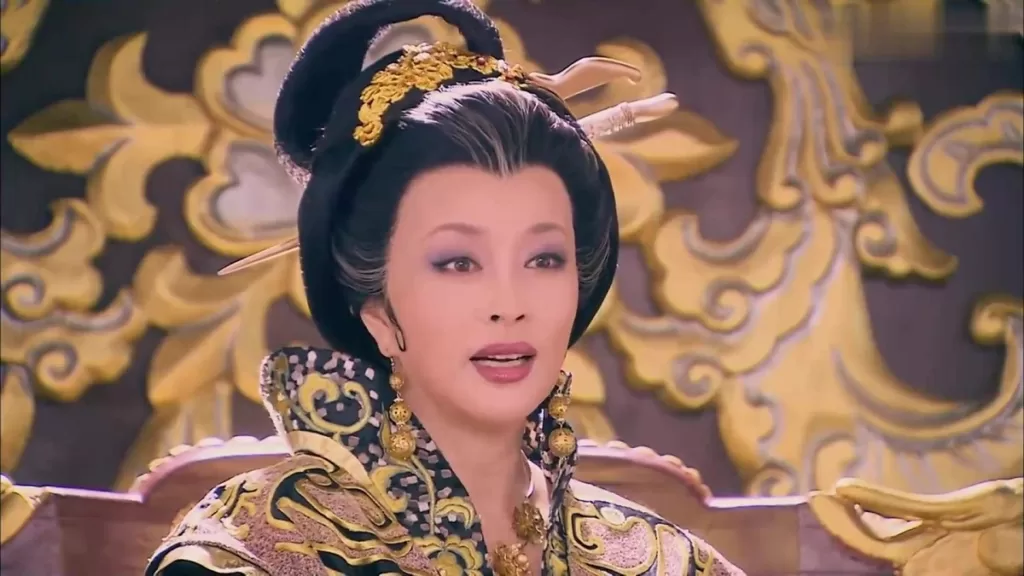Wu Zetian (武则天) (624-705 CE) was a remarkable figure in Chinese history. She is widely known as the only female emperor to have ever ruled China, and she played a significant role in the Tang dynasty’s development. Her story is one of ambition, perseverance, and intelligence, as she climbed the ranks of the imperial court to become the most powerful woman in China.
Early Life and Career:
Wu Zetian was born in 624 CE to a noble family in what is now Shanxi province. Her father was a governor, and she received a good education in literature, music, and politics. In 638 CE, she was chosen to be a concubine of Emperor Taizong, the second emperor of the Tang dynasty. She quickly caught the eye of the emperor, who favored her above the other concubines.
When Emperor Taizong died in 649 CE, his son, Emperor Gaozong, ascended to the throne. Wu Zetian was promoted to the rank of imperial concubine, but she fell out of favor with the emperor’s wife, Empress Wang, and was demoted to the rank of a lowly servant. However, she managed to win back the emperor’s favor and was reinstated as an imperial concubine.
Empress Wu:
In 655 CE, Emperor Gaozong suffered a stroke that left him partially paralyzed. Wu Zetian seized the opportunity to rise to power. She began to advise the emperor on state affairs, and he became increasingly reliant on her. In 655 CE, she was made empress consort, and she quickly began to consolidate her power.
When Emperor Gaozong died in 683 CE, Wu Zetian orchestrated a coup to take control of the Tang dynasty. She declared herself empress regnant, becoming the first and only woman to hold this title in Chinese history. She ruled China for 15 years, from 690 CE to 705 CE.
Reign as Empress:
Wu Zetian’s reign was marked by many significant achievements. She improved the administration of the government, established a system of meritocracy to appoint officials, and reformed the military. She also expanded China’s territory, annexing Korea and parts of Central Asia.
Wu Zetian was a patron of the arts, and during her reign, Chinese literature and art flourished. She was also a staunch supporter of Buddhism and Taoism and built many temples and monasteries throughout China. However, her religious policies were not always popular, and she faced some resistance from Confucian scholars who opposed her support for Buddhism.
In 697 CE, Wu Zetian moved the capital of China from Chang’an to Luoyang. This move was significant because it helped to decentralize the government and reduce the power of the aristocracy. She also abolished the hukou system, which had tied peasants to their land, allowing for greater social mobility.
Wu Zetian’s reign was not without controversy, and she faced several rebellions and uprisings during her time in power. She was also accused of cruelty and brutality, with some historians alleging that she had murdered her own family members and rivals to consolidate her power.
Death and Legacy:
In 705 CE, Wu Zetian was forced to abdicate in favor of her son, Emperor Zhongzong. She died a few months later at the age of 81. Her legacy is complex, and opinions about her rule are divided. Some historians view her as a ruthless tyrant who abused her power, while others see her as a visionary leader who brought about significant reforms and modernization.
Despite the controversies surrounding her reign, Wu Zetian remains a fascinating figure in Chinese history. As the only female emperor to have ever ruled China, she shattered gender barriers and challenged traditional patriarchal norms. She was a trailblazer for women in politics and paved the way for other women leaders in China.
Today, Wu Zetian is still celebrated in China, and her story has been the subject of many books, plays, and films. Her legacy continues to be debated and reinterpreted, and she remains a source of inspiration for many Chinese women today.
Conclusion:
In conclusion, Wu Zetian was a remarkable figure in Chinese history. Her ambition, intelligence, and perseverance helped her rise to power and become the only female emperor in China. Her reign was marked by significant achievements in politics, administration, and culture, but it was also marred by controversy and accusations of cruelty. Nevertheless, her legacy as a trailblazer for women in politics and a visionary leader continues to be celebrated in China and around the world.

